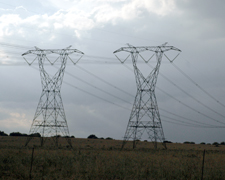
Security and supply of South Africa’s energy needs dominated the debate in the National Assembly on the Department of Mineral Resources and Energy’s budget vote, which was tabled by the Minister, Mr Gwede Mantashe yesterday.
The main purpose of department’s budget is to formulate policy and regulate to ensure that the necessary structural reforms occur to stimulate economic growth. The Chairperson of the Portfolio Committee on Mineral Resources and Energy, Mr Sahlulele Luzipo, said that in this financial year the department will address the suspensive conditions identified by the National Energy Regulator of South Africa in order to finalise the request for proposals for the procurement of 2.5 megawatts of nuclear energy.
He further said that the department will also implement long-term pricing agreements to enable smelters to secure a competitive price for electricity to facilitate mineral beneficiation. “The merger of IGas, Strategic Fuel Fund and PetroSA to form a new national petroleum company is more interesting because it is projected to target R95 billon market-potential-opportunities than was possible under three separate entities,” said Mr Luzipo. IGas, SFF and PetroSA are subsidiaries of the Central Energy Fund, one of the department’s state-owned entities.
The Democratic Alliance’s Mr Kevin Mileham, who is also a member of the Portfolio Committee on Mineral Resources and Energy, said that the country’s electricity operation has reached a crisis, whereby Eskom is forced to operate beyond capacity levels in order to keep the lights on. “Load shedding is job shedding and, as a country, we need to make electricity generation a priority for the next coming five years.”
Another committee member representing the Economic Freedom Fighters, Ms Phiwaba Madokwe, lamented the department’s lack of capacity and failure to deliver on its mandate. She referred to the Canadian-based Fraser Institute’s annual survey that ranks South Africa the world’s tenth worst mining destination. “South Africa is in the middle of a massive energy crisis and every other day we are disrupted by load shedding schedules rather than announcements that we are one step closer to a stable energy supply,” she said.
The Inkatha Freedom Party’s Professor Themba Msimang, on the other hand, said that while Eskom should be supplying 95% of the country’s energy requirements, the state utility remains an outright failure and should be dismantled.
In his response to the debates, Minister Mantashe said that although most of the comments on Eskom should have been directed at the Department of Public Enterprises, the DMRE has, however, noted all comments and undertakes to consider them as a matter of urgency.
Justice Molafo
20 May 2022

